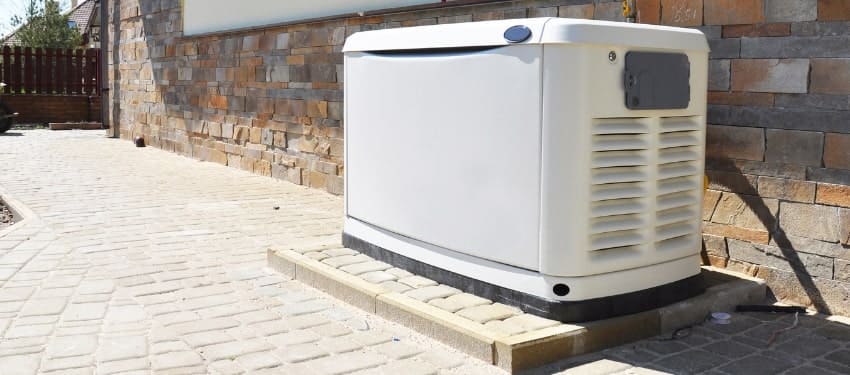As a homeowner, you will surely learn that owning a property is not easy and different costs come along with owning a house. Soon enough you’ll realize that you have to have “processes” in place to maintain your home especially since owning a house could be most likely your family’s biggest investment. Costs are never-ending, setbacks could happen anytime, and the “expect the unexpected” should be in your vocabulary as a homeowner.
Another area to think about as a homeowner is being able to differentiate between home improvement cost and home improvements that are also investments especially if you have plans to sell your house eventually. Some of examples for home improvement costs are home repairs — these are costs that you have to undergo as a homeowner whether you like it. For home improvements that you could also treat as investment, meaning there is a return of investment or ROI and not just limited to improved quality of life, you could consider projects that will pump up the resale value of your house. Examples of this are adding functional spaces, finishing basements, minor renovations in your kitchen, having manufactured stone veneer in the front of your house (this is for the “curb appeal”, meaning this is the first thing that buyers see in a property) and adding ways to promote comfort and efficiency like having a standby generator. Today, we will focus on having a standby generator, a welcomed addition to your home that will surely increase your home value.
But first, for those who do not know, what is a standby generator?
A standby generator is a backup electrical system that will automatically provide power to our homes in case of power loss. Power outages are usually triggered by severe weather, which includes hurricanes, floods, wildfires, storms, cold weather and more. A natural disaster could strike unexpectedly and cause power issues in an extended period of time.
Within seconds from having a blackout, this alternative power supply could provide power to your whole house or certain parts of your home or specific appliances depending on your needs. It is usually installed directly outside of your home and should be done professionally.
Note that a standby generator is different from a portable generator. Though both are alternative power sources during blackouts, a portable generator is a temporary solution only and has to be manually started by pulling the cords. It is also portable, could power select appliances with no need for installation, whereas a standby generator is a permanent backup power solution that is permanently installed in your home and can power overall home needs.
What are the pros of having a standby generator? Why could a standby generator increase home value?

Increased home value– nowadays, potential buyers have high standards when searching for the perfect property that will fit their budget range. Most often than not, they will choose houses that are not only attractive but also practical, safe, and basically cost-effective. With climate change, the weather is becoming more and more unpredictable, and having this feature is definitely a plus one for potential buyers thus upping your home value to increase.
Homeowners/buyers are all for comfort and convenience – we heavily rely on electricity in our day-to-day living – from our warm bath, cooking, entertainment, and more, electricity is something most of us cannot live without. This is very evident why a blackout could create havoc in how we run things in our home. With a backup generator, homeowners have the peace of mind that despite uncontrolled issues like severe weather, they are protected in their homes and could still go about their daily routines and continue to use electricity for air-conditioning, fridge, lighting, heating devices, and more.
A standby generator prevents loss and repair/replacement cost – once the power is out and if in long periods, you could start saying goodbye to your freezer and fridge content, as spoilage could happen. If you also do not have power surge protection in place, your electronics could be damaged from when the power is back on. It could either be for repair or worst for replacement. For homeowners who work from home, a day’s work could be lost. Having a standby generator would allow you to continue working especially on those time-sensitive tasks.
A standby generator can protect your home – in addition to not worrying about food spoilage and paying for electronic repairs and replacement, a standby generator adds security to your home. You are assured that even with a prolonged power outage, your home’s security system is up and running. Plus if power outages happen during the cold season, your generator can prevent your pipes from freezing and other plumbing issues. Moreover, it also allows you to stay connected in case of natural disasters, as you are able to charge your mobile phones, watch the news, etc.
Insurance savings – did you know that many insurers will “reward” homeowners with discounts (generally around 5%) for having a generator at home? So if you want to have a lower insurance cost, making your house safer is one way to do it. The logic is that a generator could reduce potential claims brought about by power outages. With your home’s valuable system being intact, you are able to continuously protect your property from severe damages and the insurance claims that come with it. For example, your home now has an “anti-theft mechanism”, as your alarm system and having lights still on deterring potential theft once power is out.
Another example is your sump dump, if you have an alternative power in place, homeowners will not worry about flooding brought about inactive sump pump, meaning this will be another slash of potential home damage and insurance claims.
What is the cost range of having a standby generator?
There is a varying cost on having a standby generator and to warn you, it doesn’t come cheap. You could spend from $2,000 to up to $20,000 and more depending on the property size, existing house structure, your requirements, and capacity.
In addition, a standby generator requires professionals to install it, so the labor cost will add up to the final cost. It may come with a hefty price tag, but the convenience and increase in property value pay it off.
Additional costs that you should prepare for are:
- Obtaining permits and permissions
- Electrical panel upgrade
- Materials for installation
- Transfer switch installation if not existing (this is a must to avoid damage to your generator and electronics)
Tip: A professional will help you identify your requirements, but before consulting with one, you can start listing what appliances you want to use during a blackout. Most likely, your cooling or heating system, refrigerator, and charging for electronic devices and sump pumps will comprise your main requirements. So you will need a generator that could power those simultaneously. Most households will be able to run their critical equipment with 7500 watts.
Why do you need a licensed electrician and plumber to install your standby generator?

Similar to an outdoor unit of an HVAC system, you will not be able to do a DIY installation. A quick read on the manual and a couple of “How to” YouTube videos won’t suffice in installing your standby generator, as it involves a complex process plus it is not legal for you to do this by yourself.
A standby generator is connected to your home’s electrical panel and is powered by liquid propane or natural gas, or diesel which allows it to provide power for as long as you need it. So a licensed plumber and electrician are needed. Permits are also required to install it. If you do not follow this, a hefty penalty from Department of Buildings violations will follow and in case of accidents or damages caused by the illegal installation of your standby generator happen, you will most likely have coverage issues from your home insurance.
Electricity and gases are not something to take lightly, do not risk it by attempting to do the installation by yourself. Aside from safety issues, you will also need qualified professionals to thoroughly assess your home’s needs. They will be able to recommend the right size and type of generator that will be most cost-effective for your home.
Need a licensed electrician near you? Click here.
Connect with a professional plumber here.
Budget-wise, having a standby generator may be a big leap for your family, but this is one home improvement that is guaranteed to have a return of investment especially if you are planning to sell your house, as it increases home value.
Consider having one in your home, especially since our modern world that relies on electricity to run our day-to-day living, this is a good investment to avoid disruptions. Your standby generator provides safety, efficiency, comfort, and peace of mind during times of extended power outages. The benefits will also eventually pay off the initial cost of purchasing and having it installed by professionals.


